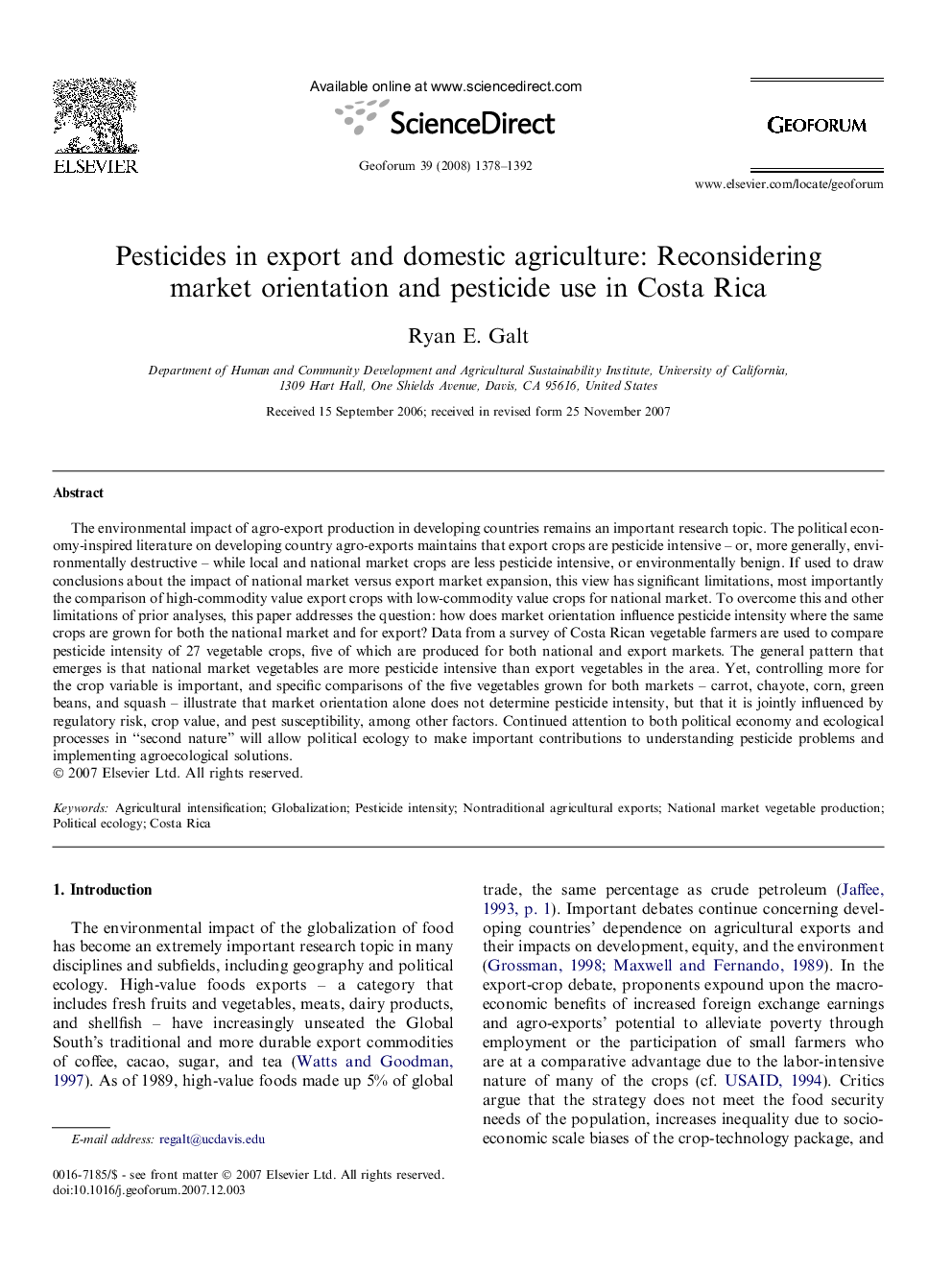| کد مقاله | کد نشریه | سال انتشار | مقاله انگلیسی | نسخه تمام متن |
|---|---|---|---|---|
| 5075130 | 1373730 | 2008 | 15 صفحه PDF | دانلود رایگان |
عنوان انگلیسی مقاله ISI
Pesticides in export and domestic agriculture: Reconsidering market orientation and pesticide use in Costa Rica
دانلود مقاله + سفارش ترجمه
دانلود مقاله ISI انگلیسی
رایگان برای ایرانیان
کلمات کلیدی
موضوعات مرتبط
علوم انسانی و اجتماعی
اقتصاد، اقتصادسنجی و امور مالی
اقتصاد و اقتصادسنجی
پیش نمایش صفحه اول مقاله

چکیده انگلیسی
The environmental impact of agro-export production in developing countries remains an important research topic. The political economy-inspired literature on developing country agro-exports maintains that export crops are pesticide intensive - or, more generally, environmentally destructive - while local and national market crops are less pesticide intensive, or environmentally benign. If used to draw conclusions about the impact of national market versus export market expansion, this view has significant limitations, most importantly the comparison of high-commodity value export crops with low-commodity value crops for national market. To overcome this and other limitations of prior analyses, this paper addresses the question: how does market orientation influence pesticide intensity where the same crops are grown for both the national market and for export? Data from a survey of Costa Rican vegetable farmers are used to compare pesticide intensity of 27 vegetable crops, five of which are produced for both national and export markets. The general pattern that emerges is that national market vegetables are more pesticide intensive than export vegetables in the area. Yet, controlling more for the crop variable is important, and specific comparisons of the five vegetables grown for both markets - carrot, chayote, corn, green beans, and squash - illustrate that market orientation alone does not determine pesticide intensity, but that it is jointly influenced by regulatory risk, crop value, and pest susceptibility, among other factors. Continued attention to both political economy and ecological processes in “second nature” will allow political ecology to make important contributions to understanding pesticide problems and implementing agroecological solutions.
ناشر
Database: Elsevier - ScienceDirect (ساینس دایرکت)
Journal: Geoforum - Volume 39, Issue 3, May 2008, Pages 1378-1392
Journal: Geoforum - Volume 39, Issue 3, May 2008, Pages 1378-1392
نویسندگان
Ryan E. Galt,